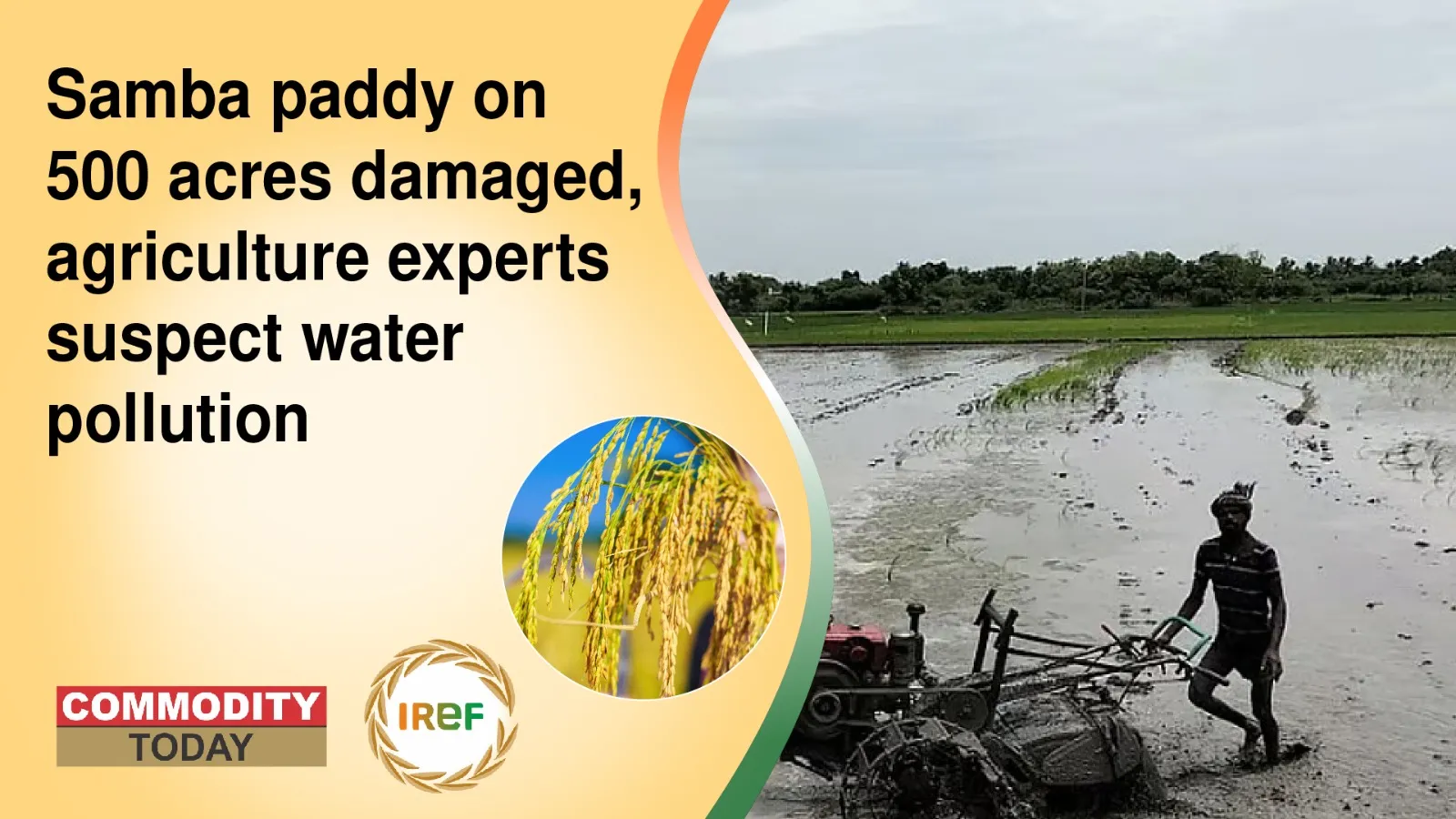Samba Paddy on 500 Acres Damaged, Agriculture Experts Suspect Water Pollution

Samba paddy cultivated in around 500 acres in several villages in Thiruverumbur block of Tamil Nadu, especially Vengur and Pazhanganankudi villages are getting damaged, leaving farmers worried and feared of wastage of samba paddy cultivation. For the unversed, Samba rice is a non-basmati rice variety popular in South India. It is different from basmati rice varieties, however has found its place in the list of some of the most sought-after non-basmati rice varieties. Experts from agriculture department suspect polluted water may have caused this and are set to recommend probe by Tamil Nadu Pollution Control Board (TNPCB).
Samba Paddy Cultivation is under way in Lalgudi, Mannachanallur, Anthanallur, Thiruverumbur, Manikandam, Musiri, Thottiam, Thuraiyur, and Pullambadi blocks. The commonly cultivated varieties, recommended by Tamil Nadu Agricultural University, include TRY-3, CO (R) 50, and CR 1009. Fearing of crop loss, a majority of farmers have cultivated TRY-3 and CO (R) 50, farmers in the Thiruverumbur block have opted for CR 1009, which is considered to be resistant to common pests and diseases such as leaf folder, stem borer, blast, and sheath rot. But the crop has suffered damage in 500 acres in the block despite there being no incident of pest attack thus resulting into wastage of farmers struggle.
Agricultural Experts Suspect of Water Pollution
Agriculture experts after crop loss in 500 acres are suspecting of water pollution. In this context, A senior agriculture department official said polluted water may have caused the crop damage. "Polluted water might be the reason for the withering of crop.”
Officials have been advised to identify the source of polluted water that has resulted into the loss of Samba paddy.